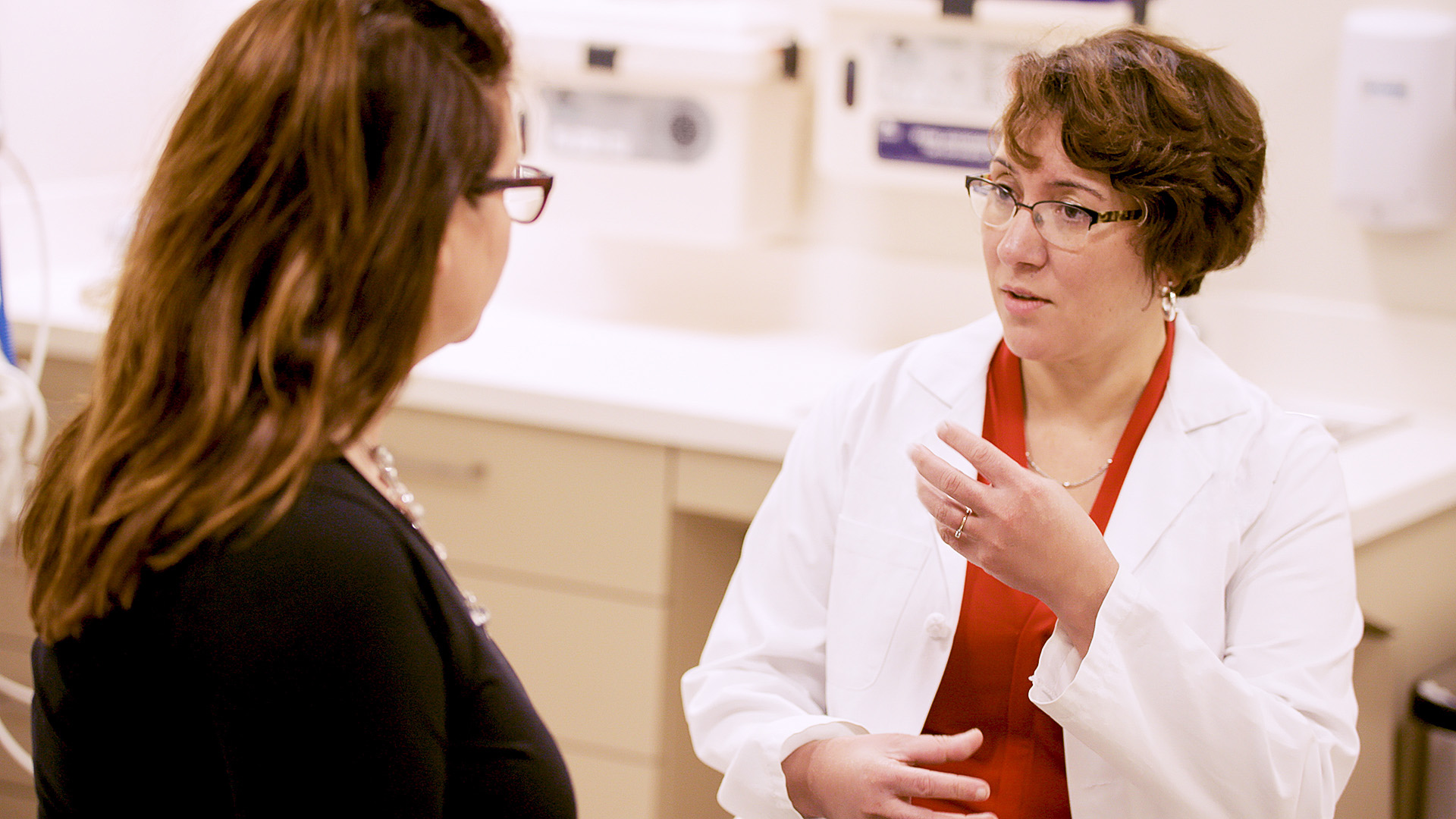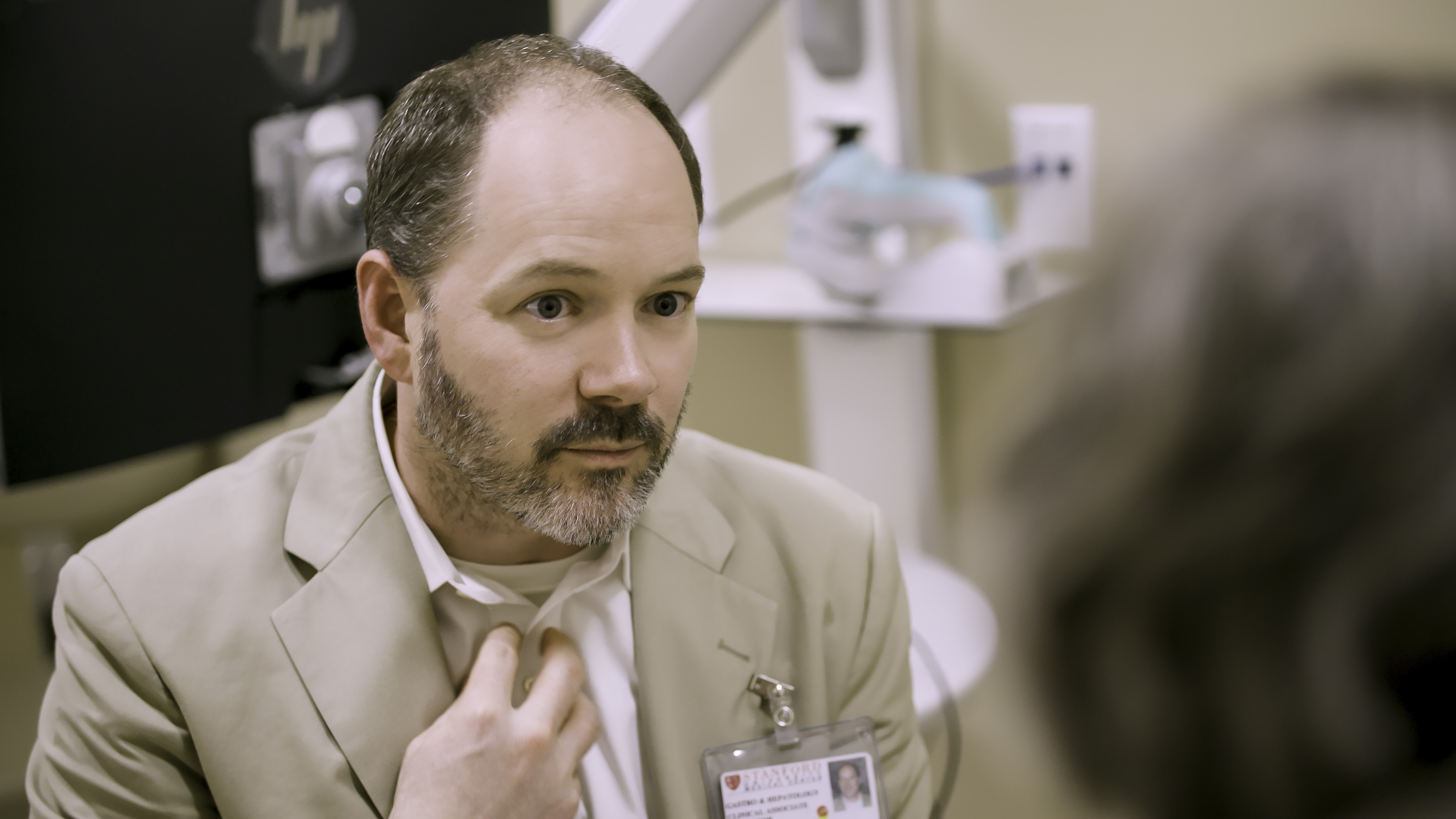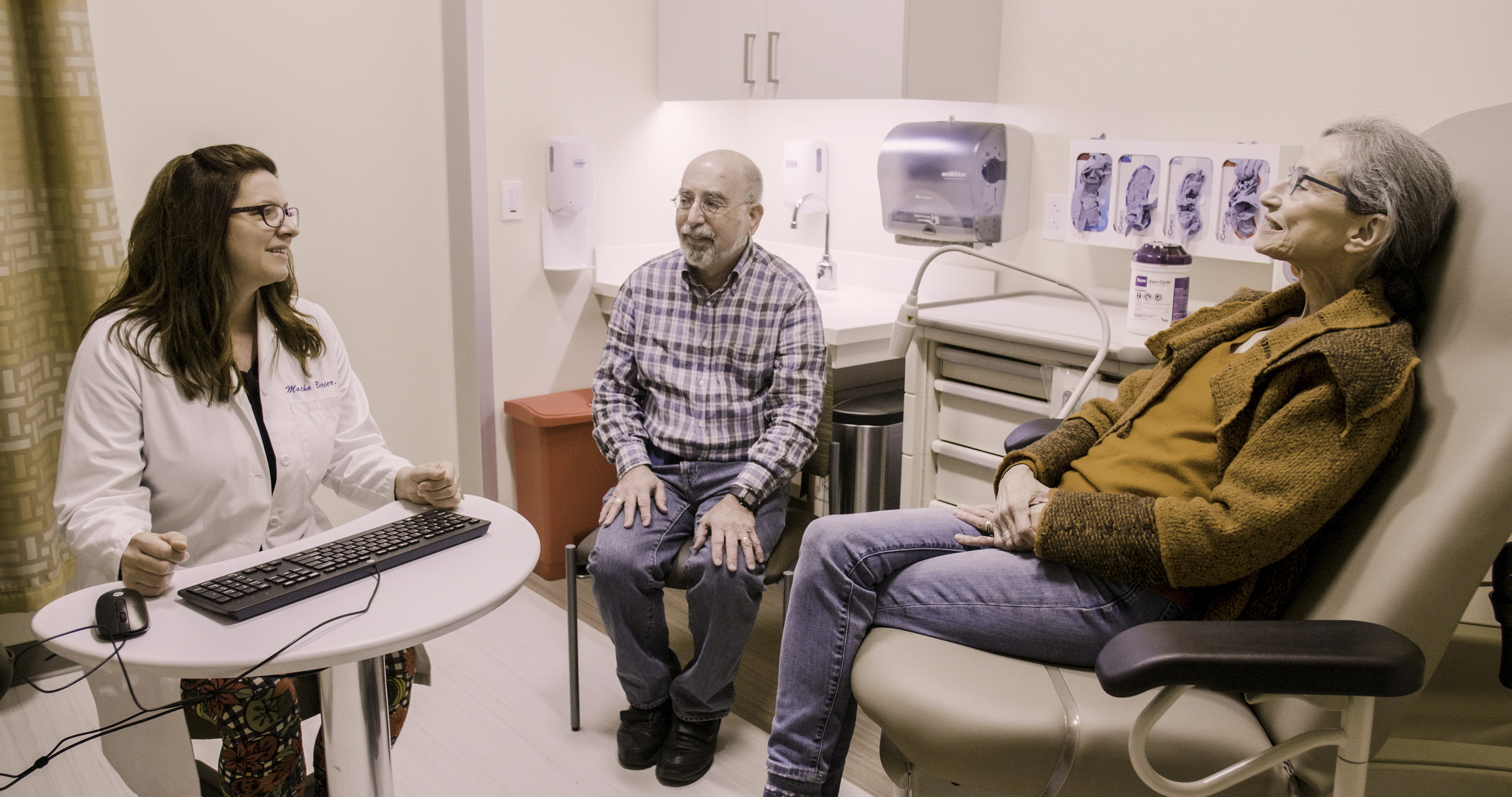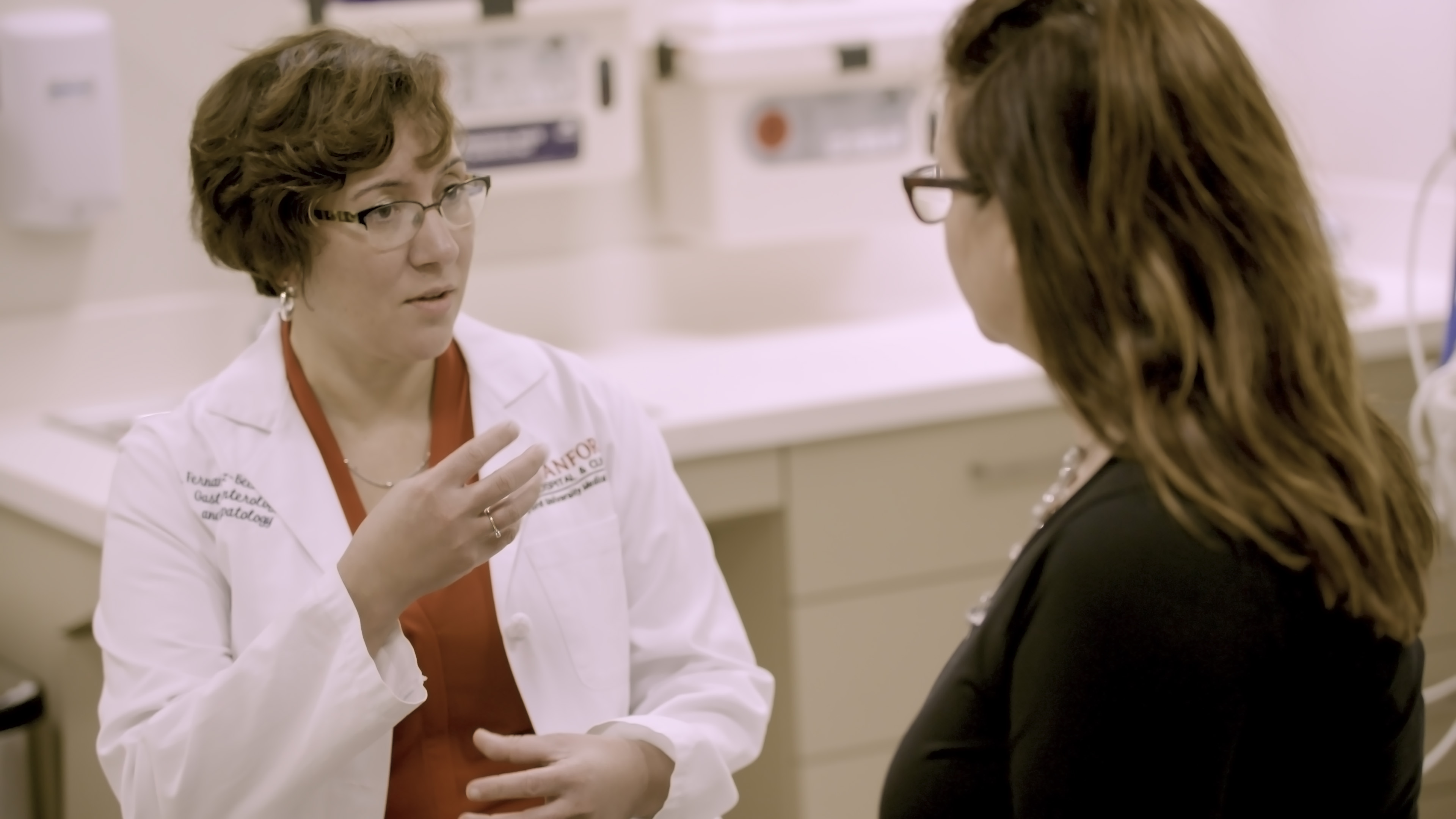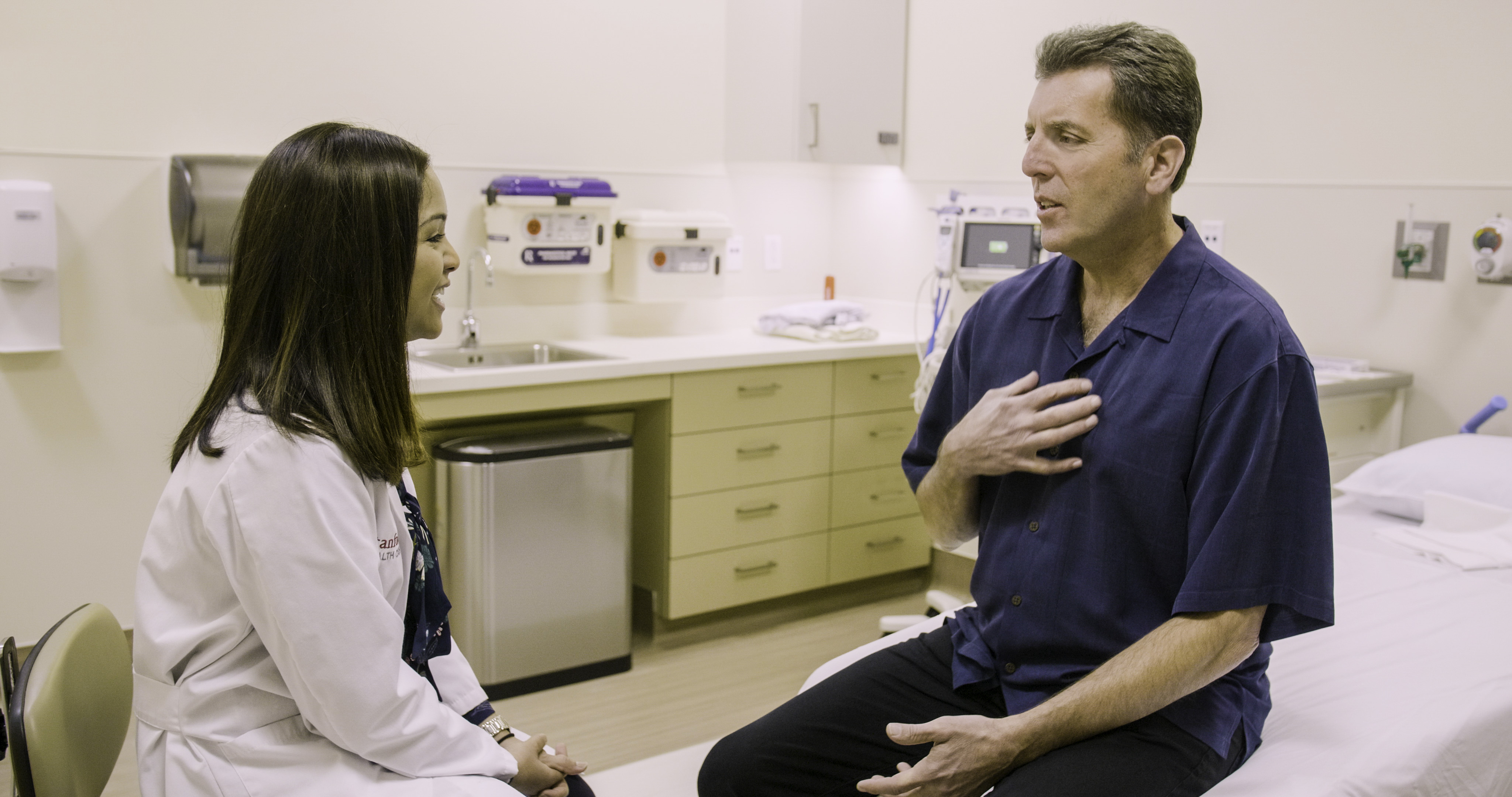Esophagus Center
Part of Digestive Health Center
Leaders in Esophageal Disorders Treatment
Our doctors lead the way in treating esophageal disorders with unmatched expertise and the latest technological advancements. We develop personalized treatment plans to help you live your most healthy life.
420 Broadway Street, Pavilion D, 2nd Floor
Redwood City, CA 94063
Phone: 650-736-5555
What We Offer You for Esophageal Disorders
- Specialized expertise in treating all common and complex esophageal conditions including reflux disease, difficulty swallowing and Barrett’s esophagus. Go to Conditions Treated
- Advanced treatment options including medications and minimally invasive endoscopic and laparoscopic techniques to help you manage symptoms. Go to Treatments
- Clinical trials involving the latest medical devices to help manage esophageal disorders. Go to Clinical Trials
- Team-based approach to diagnosis and treatment through collaborative multispecialty clinics and a weekly clinical meeting involving doctors from multiple specialties. Go to Your Care Team
- Comprehensive support services to help you and your family focus on health and healing, including nutrition counseling. Go to Support Services
- Easy access to care for diagnosis and treatment through two convenient locations. Go to Accessing Care
We have decades of experience diagnosing and treating many rare and common esophageal disorders. Our doctors lecture nationally and internationally on esophageal topics, are recognized as world leaders in esophagology, edit top gastrointestinal medical journals, and work with medical advisory boards to develop national care protocols for treating esophageal conditions.
Our entire team works together and with you to develop a care plan best suited to your specific needs. Your treatment may include one or several therapies to help you best manage the condition and its symptoms. Our experts provide treatment for many esophageal conditions, including:
- Gastroesophageal reflux disease (GERD)
- Difficulty swallowing (dysphagia)
- Eosinophilic esophagitis
- Barrett’s esophagus
- Benign esophageal tumors
- Swallowing disorders, including achalasia and esophageal spasm
- Conditions that affect esophageal function, such as:
- Rheumatologic or autoimmune disorders like scleroderma and lupus that may have esophageal findings
- Persistent cough and sore throat if related to an esophageal cause such as reflux
- Pulmonary (lung) conditions if related to an esophageal cause such as reflux or aspiration
- Noncardiac chest pain
Our experts perform more minimally-invasive esophageal procedures than any other academic center in the Bay Area.
Your Stanford team uses advanced technologies not found elsewhere to accurately diagnose and effectively treat a variety of esophageal disorders. Our doctors collaborate to develop a personalized treatment plan and use minimally invasive therapies whenever possible.
INNOVATION HIGHLIGHTS
Stanford is one of the only health care centers in the San Francisco Bay Area offering diagnostic testing and minimally-invasive treatment with advanced therapies for many esophageal disorders, including:
- Cryoballoon: Using a special catheter and balloon, your doctor uses cold energy to destroy precancerous cells caused by Barrett’s esophagus.
- Stretta®: This procedure uses radiofrequency energy to help tighten the junction between your esophagus and stomach, reducing the symptoms of GERD.
- LINX®: Your doctor crafts a special magnet bracelet that fits around the outside of your esophagus, preventing the symptoms of GERD while allowing you to eat and drink normally.
Advanced Diagnostics
Our experts excel at using advanced functional testing to plan effective, personalized treatment for your unique needs. We offer a full range of motility, distensibility and reflux tests to pinpoint the cause of many esophageal conditions.
Motility studies
High-resolution esophageal manometry helps determine how swallowing certain foods and liquids brings on symptoms. Stanford experts have advanced training in using specialized techniques that bring on symptoms to help determine the cause of the problem.
What to Expect for Your Esophageal Manometry Procedure
EndoFlip® with FLIP® Topography
Our doctors use this diagnostic study during endoscopy to measure esophageal diameter and distensibility, or how far the esophagus can stretch. The results help detect subtle strictures and monitor your response to achalasia therapies.
Barrett’s esophagus technologies
Because Barrett’s esophagus can lead to serious complications, our doctors are committed to providing an accurate diagnosis using the latest technology.
- Confocal endomicroscopy during endoscopy allows your doctor to visualize microscopic changes to your esophagus in real time. This technology helps find areas of concern in people being monitored for Barrett’s esophagus.
- Optical coherence tomography (OCT) uses a specialized laser to determine how deeply the condition is affecting the layers of your esophagus tissue.
Reflux testing
This type of testing provides a thorough analysis of acid reflux and the symptoms it causes. We use two techniques:
- pH impedance using a special catheter, or tube, to measure acid reflux for 24 hours
- Bravo procedure in which your doctor endoscopically places a special wireless pH probe that measures stomach acid for up to 96 hours
Treatments
Our experts have an international reputation for excellence in developing and providing effective treatments for many esophageal conditions. We make your treatment plan personal to you and use noninvasive options whenever possible to help meet your goals for treatment.
Dietary and lifestyle changes
We work with you to develop healthy dietary and lifestyle habits that could help stop symptoms of certain esophageal conditions.
Medications
Certain medications are sometimes enough to stop symptoms. Your doctor can help you determine if medication is a good treatment choice for you. Medications commonly used include:
- Antacids to help neutralize stomach acid.
- H2 blockers to stimulate certain cells in the stomach to produce acid.
- Proton pump inhibitors (PPIs) to reduce stomach acid.
Complementary therapies
For some people, complementary therapies like herbal therapy and acupuncture provide effective symptom relief. Doctors and therapists at the Center for Integrative Medicine work with you to determine how complementary treatments may enhance your treatment plan.
Medical nutrition therapy
Certain esophageal disorders, like dysphagia, can prevent you from getting adequate nutrition. If needed, we work with you to ensure that you receive enough nutrients each day. Our dedicated nutritionist can work with you to customize a plan geared to your individual needs.
Endoscopy
These treatments use a thin, flexible tube with a light source and special equipment to access the interior of your esophagus and, if needed, take tissue samples (biopsies). Our doctors specialize in these endoscopic treatments:
- Dilation and stenting
- Endoscopic motility assessment
- Botulinum toxin for digestive disorders
- Ablation for Barrett’s esophagus
- Endoscopic mucosal and submucosal dissection
- Transoral incisionless fundoplication
- Peroral endoscopic myotomy (POEM)
Laparoscopy
For some esophageal conditions, treatment using a laparoscopic surgical approach can provide long-lasting, effective symptom relief.
This type of surgery uses small abdominal incisions to access the interior of your abdomen, where our doctors use specialized cameras and surgical instruments to treat your esophagus. We offer laparoscopic procedures for certain esophageal conditions:
- Nissen fundoplication
- Partial fundoplication such as Dor and Toupet
- Heller myotomy
- LINX® reflux management system
- Bariatric procedures including Roux-en-Y gastric bypass
- Hernia repair
- Surgical revision of fundoplication
- Gastric bypass for esophagus disorders
Surgery
Our surgeons have extensive expertise performing complex, gastrointestinal and thoracic (chest) surgeries, including those areas between the neck and abdomen. Using the latest techniques backed by clinical research, we work to correct the cause of esophageal disorders with unmatched knowledge and skill:
- Esophagus resection
- Hernia repair
- Surgical revision of fundoplication
- Gastric bypass for esophagus disorders
- Collis gastroplasty
- Thoracic surgeries
Treatment by Condition
We offer effective treatment for a variety of esophageal conditions, including many rare disorders. We specialize in therapies targeting these disorders:
Esophageal disorders
Conditions that affect esophageal function
- Rheumatology disorders like scleroderma and lupus
- Extra-esophageal issues including persistent cough and sore throat
- Pulmonary conditions with a possible esophageal link, including interstitial lung disease and chronic cough
- Noncardiac chest pain
Clinical Trials
We offer one of the nation’s most robust clinical trial programs for esophageal conditions. These research studies evaluate new medical approaches, devices, drugs, and other treatments.
As a Stanford Health Care patient, you may be eligible to participate in open clinical trials. Open trials refer to studies currently recruiting participants or that may recruit participants in the near future. Closed trials are not currently enrolling, but similar studies may open in the future.
To learn more about the clinical trials we offer, contact Divya Pathak at 650-721-8436.
Your Esophagus Center Care Team
Every day, our doctors collaborate with nurses, registered dietitians, and other health care professionals to develop and implement the most effective care plan for you. Doctors from multiple specialties meet weekly to share ideas and discuss innovative solutions for each person in our care. Some patients may see multiple specialists during the same visit in a collaborative clinic.
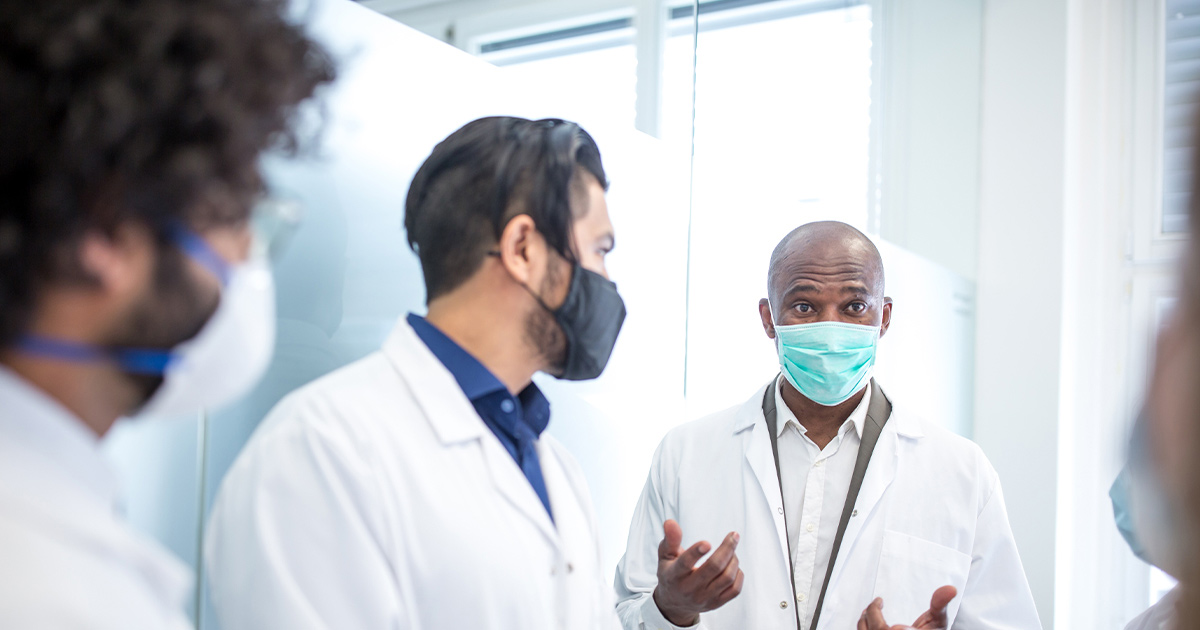
Your Doctors
Gastroenterologists
Gastroenterologists specialize in diagnosing and managing conditions affecting the gastrointestinal tract, including your mouth, esophagus, stomach, intestines, liver, pancreas, and gallbladder. Our gastroenterologists have extensive training and experience managing a variety of esophageal conditions.
View All {0} Gastroenterologists »Clinical Partnerships
Our Esophagus Center doctors collaborate with many different Stanford specialists. As our patient, you’ll benefit from a direct connection with other disciplines to enhance your treatment plan. Many of the specialties we collaborate with include:
Surgeons
If your treatment involves surgery, our talented gastrointestinal and general surgeons work with your Esophagus Center care team to plan surgery and educate you on what to expect next. Our surgeons use advanced surgical techniques to treat many types of esophageal and gastrointestinal conditions.
View All {0} General Surgeons »
Thoracic Surgeons
Our thoracic surgeons have sub-specialty training in the surgical treatment of esophagus disorders and diseases including minimally invasive esophagectomy and esophageal reconstruction.
View All {0} Thoracic Surgeons »Otolaryngologists
Occasionally, our doctors work with otolaryngologists specializing in disorders of the ear, nose, and throat at the Voice and Swallowing Clinic. If necessary, your care could include consultations and treatment recommendations from these specialists.
View All {0} Laryngologists »Nurse Practitioner
Nurse practitioners (NPs) are registered nurses (RNs) who have advanced education and clinical training. They can perform physical exams, diagnose and treat health problems, order lab work and X-rays, prescribe medicines, and provide health information.
View All {0} Nurse Practitioners »Stanford is an Academic Medical Center, which is a type of hospital setting where doctors teach the entire spectrum of medical education. Students range from beginning medical students to fully licensed and practicing doctors completing advanced sub-specialty training. Stanford Medicine is a partnership between Stanford University School of Medicine and Stanford Health Care. Since Stanford is a teaching hospital, you can expect to meet many providers and providers in training.
- Attending Physician: a doctor who supervises doctors in training or in medical school
- Fellow: a doctor doing postgraduate level work and specializing in care of patients with specific conditions
- Resident: a doctor who has graduated from medical school and is in training (also called “residency”) here at Stanford. A resident is also called an intern
- Medical Student: a student who is currently enrolled in medical school with the goal of becoming a doctor
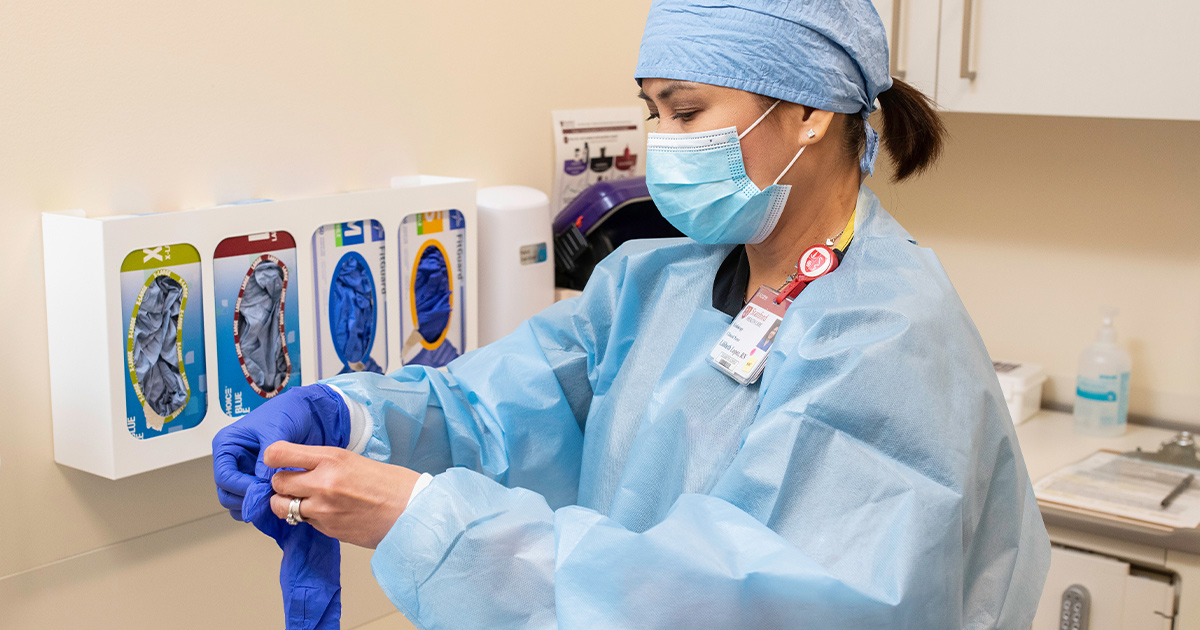
Extended Care Team
Registered dietitians are experts in food and nutrition. They work with you to develop a plan for making healthy diet changes that may help reduce or prevent symptoms of some esophageal conditions.
Neha Shah, RD
Nutritionist
Our patient care coordinators help you with appointment scheduling and access to resources to help guide you through your experience at the Esophagus Center.
Medical assistants work with our team to help provide care. As part of your individual care plan, a medical assistant may prepare you for an examination, assist your doctor during the examination, or take a sample of your blood.
Doctors at the Esophagus Center are heavily involved in research efforts to advance our understanding of esophagus conditions and treatments. Our research coordinators help screen candidates for possible participation in clinical research trials.
Our speech pathologists work closely with our Otolaryngologists and provide therapy for conditions that affect the larynx, airway, and upper esophagus.

Support Services
At Stanford, we take care of the details so that you can focus on your health and wellness. Our gastroenterologists, surgeons, and otolaryngologists work as a team with device nurses, advanced practice providers, registered dietitians, and imaging technologists to coordinate every aspect of your care. We also offer a wide range of support services to promote healing and improve your quality of life.
- Case Management
- Financial Counseling
- Guest Services
- Integrative Medicine (acupuncture, massage)
- Interpreter Services
- Lifestyle Modification Support
- Nutrition Services
- Spiritual Care
- Stanford Health Library
Frequently Asked Questions
We participate in a wide range of insurance plans. View the list of insurance plans accepted by Stanford Health Care »
Have insurance or pre-authorization questions? The Patient Financial Clearance team is available Monday – Friday, 8 a.m. – 5 p.m., to answer your questions. Please call 650-724-4445 or 1-877-291-7335 (toll free).
When choosing a doctor, it’s important to consider the doctor’s clinical training, experience and expertise in a specialized area that matches your health care needs.
You can find the right Stanford doctor for you by using our doctor directory and filtering the results based on a medical category, specialty, or doctor’s last name. View our list of our Esophagus Center doctors »
At Stanford, we take care of the details so that you can focus on your health and wellness. Our gastroenterologists, neurologists, surgeons, and otolaryngologists work as a team with device nurses, advanced practice providers, registered dietitians, and imaging technologists to coordinate every aspect of your care. We also offer a wide range of support services to promote healing and improve your quality of life. Learn more about our support services »
You can call the Esophagus Center directly to schedule an appointment with one of our doctors. Call 650-736-5555 to make an appointment.
Yes, Stanford Health Care offers financial assistance for patients who are uninsured or underinsured. Meet with one of our financial counselors to find the best approach to paying for your health care. Financial counselors are available Monday through Friday from 7:00 a.m. – 6:00 p.m. Learn more about financial assistance services »
Managing treatment for Esophageal Disorders is a highly personalized process. Our care team guides you every step of the way, including:
- What to expect and what to bring on the day of your appointment
- Maps, directions, parking, public transit options, and contact information
- Suggested questions to ask your doctor
For your first appointment, you should plan to bring any related test results and your medical history to share with your doctor. Our clinic receptionists will confirm the information you should bring with you prior to your first appointment.
You will also need to have the following information with you when you check in:
- Insurance card
- A form of payment for any co-pays or deductibles
- One form of photo ID:
- Valid state-issued driver’s license
- Valid state-issued ID card
- Valid passport
- Valid U.S. Military ID card
- Valid U.S. Permanent Resident Card
- Completed new patient questionnaire form
The Esophagus Center is located at the following address. Self-parking options are available for a fee.
Directions and Parking information for the Esophageal Center:
Esophagus Center
900 Blake Wilbur Drive
Palo Alto, CA 94304
Phone: 650-736-5555
Please plan to arrive 20-30 minutes prior to your appointment time due to construction near the main hospital campus. This will allow you plenty of time to park, locate your clinic and complete any additional paperwork.
Please print, fill out, and return the Medical Record Release Form to your new patient coordinator. The medical release form is an authorization form for external facilities to release medical records to Stanford Health Care.
Always feel free to bring someone with you to your appointments. A family member or friend can help ask questions, remember the information your care team gives you, and provide support.
Write down your questions before your appointment and rank them in order of importance, beginning with the most important ones. If there isn’t enough time to have all your questions answered during your appointment, ask your doctor who you can speak with to get your other questions answered.
You have multiple options when it comes to paying your bill.
- Pay Online:
- You can log in to MyHealth or the MyHealth mobile app to see and pay your bill.
Already have an account but need help logging in?
Contact the MyHealth Help Desk
- You can also pay as a guest to pay your bill without logging in.
- Pay by mail:
- Stanford Health Care
P.O. Box 740715, Los Angeles, CA 90074-0715
Los Angeles, CA 90074-0715
- Stanford Health Care
- Pay by Phone:
- You can call our Patient Billing Customer Service Office
1-800-549-3720.
- You can call our Patient Billing Customer Service Office
For our latest business hours and for more information about billing, visit our Billing page.
At Stanford, we take care of the details so that you can focus on your health and wellness. Our gastroenterologists, neurologists, surgeons, and otolaryngologists work as a team with device nurses, advanced practice providers, registered dietitians, and imaging technologists to coordinate every aspect of your care. We also offer a wide range of support services to promote healing and improve your quality of life. Learn more about our support services »
Please call our clinic receptionists at 650-736-5555. They are available Monday through Friday, 8:30 a.m. to 5:30 p.m. to help you reschedule or cancel your appointment.
To determine if a clinical trial is right for you, talk to your doctor. He or she can refer you to a research coordinator for more information on studies that may be right for your specific condition.
You can also find the guidelines for who can participate in a particular clinical trial online. However, it is best to work with your doctor to decide the right care approach for your needs.
View list of open Esophagus Center clinical trials at Stanford »
Many of our programs are available to international patients.
Our International Medicine Services team can help you find the right doctor, estimate medical costs, book travel, and get you information about Stanford programs and services.
Please call +1 650-723-8561 or email IMS@stanfordhealthcare.org to get started.
For Referring Physicians
PHYSICIAN HELPLINE
Fax: 650-320-9443
Monday–Friday, 8 a.m.–5 p.m.
Stanford Health Care provides comprehensive services to refer and track patients, as well as the latest information and news for physicians and office staff. For help with all referral needs and questions, visit Referral Information.
You may also submit a web referral or complete a referral form and fax it to 650-320-9443 or email the Referral Center at ReferralCenter@stanfordhealthcare.org.
 Esophagus Center
Esophagus Center 
